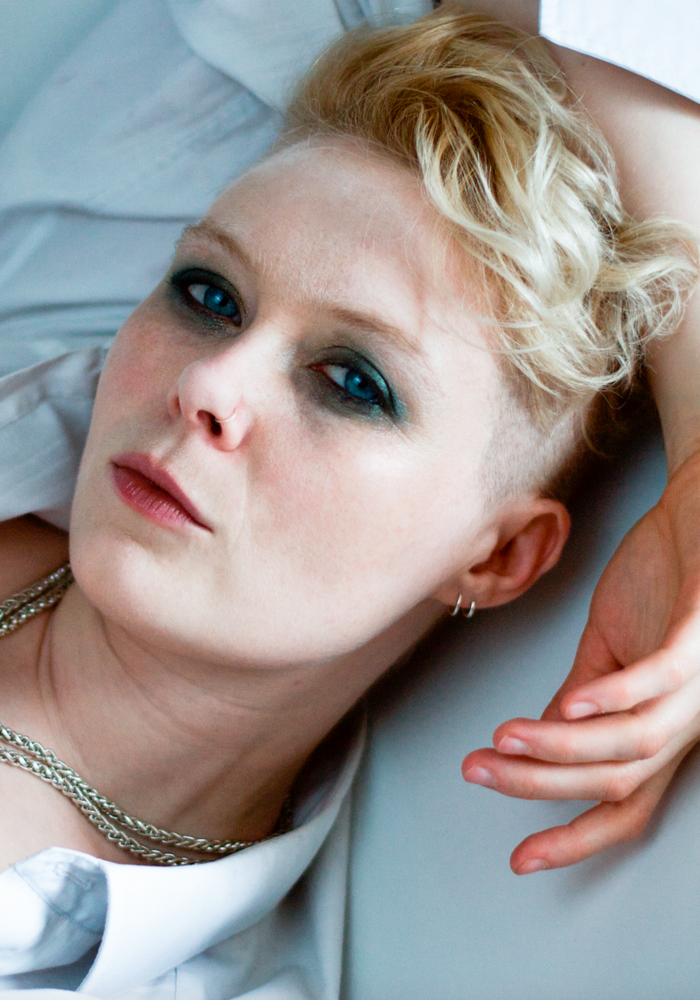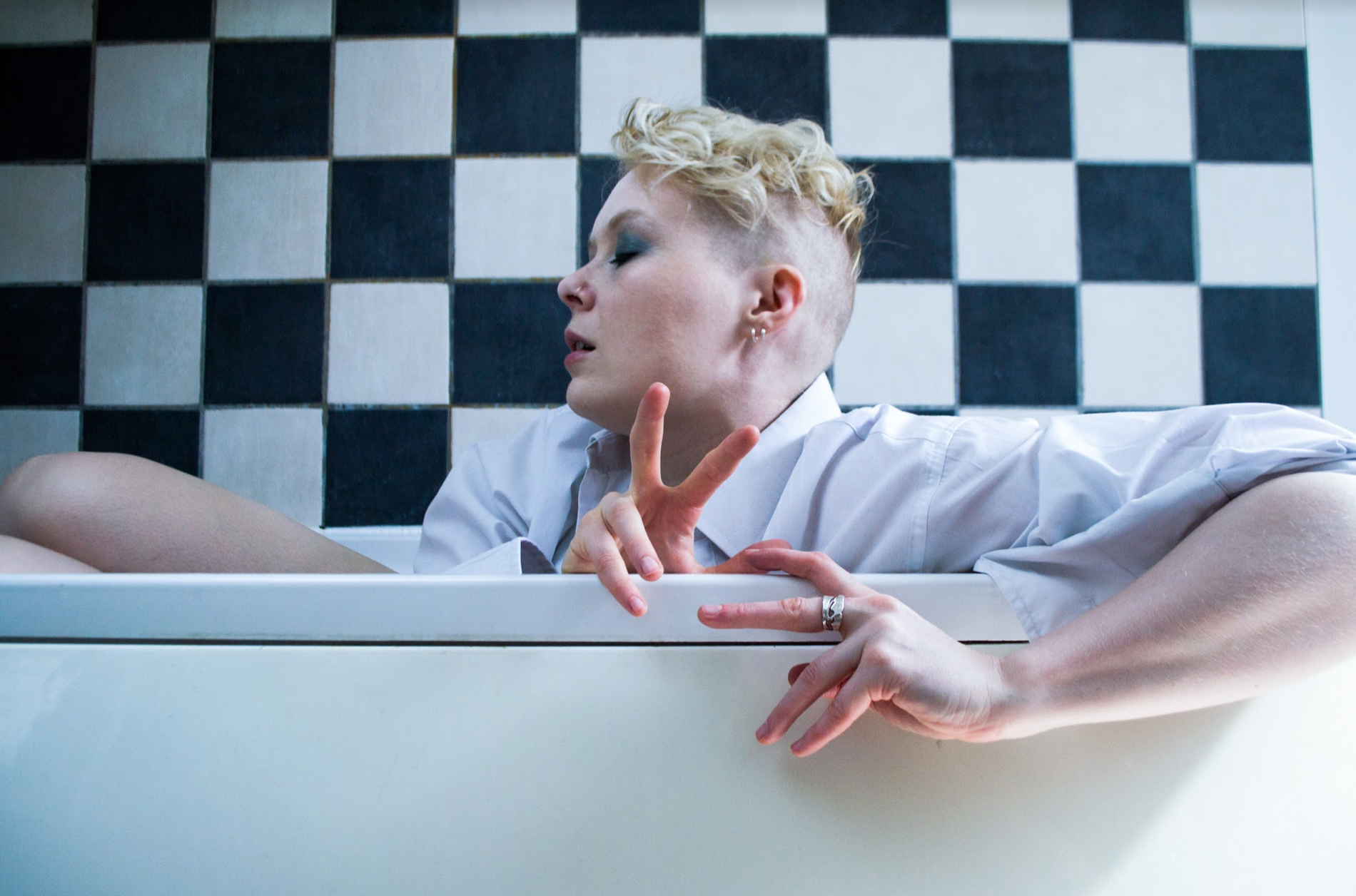Following the release of lead singles Consent and Paint, artist and producer Rookes releases her new album POPNOTPOP on November 9. Headliner caught up with her for a chat about the challenges she has had to overcome in completing the record and subverting contemporary pop as we know it…
Almost three years in the making, POPNOTPOP marks the culmination of a period of intense artistic discovery for Rookes, as well as her procurement of the coveted MPG scholarship and £3,000 of Help Musicians funding. As such, she sought to capitalise on these opportunities to the fullest, driving her formidable skills as a vocalist and multi-instrumentalist to create a record brimming with invention, melody and wonderfully skewed pop sensibilities. There’s also broad blend of genres on display, with the likes of Bloc Party, Radiohead, Chvrches, Skrillex, and M83 among those cited as influences on the outcome of the record.
Here, Rookes joins us via Zoom from her setup at North London’s Ten87 Studios for an in-depth look inside the making of her most ambitious release yet, the challenges that carved its creation, and the homogenous nature of today’s industry…
It’s been a busy year for you so far! What have you been up to?
There has been a lot of focus on getting the PopNotPop album out. It’s a Help Musicians grant-funded album, and I won that grant in 2020. But then 2021 was an unexpectedly awful year for a lot of people for different reasons. I had a slice of that going on myself - I had some slightly tricky personal and professional issues, so I took a break from making the record and came back about six months later and mixed it with Katie Tavini, who isn’t a mix engineer by trade, but knows a hell of a lot about engineering. So together we mixed the album and it sounds absolutely banging.
There had been a lot of preparation in the run up to that, as it’s an independent release. We looked at getting a label involved but you are subject to their timelines - they aren’t really interested in taking on yours, so that could have created delay in getting the album out. And because it was a grant funded album there is a deadline, and that deadline had already been extended. So I thought, let’s just make it an independent release, because I know how to do those. And for me, as someone who is moving into production rather than seeking a solo artist career, it has meant that I am offering this as a nice, chunky portfolio of all my production skills. It was very important to get the album right from that perspective. This album is going to be what people find when they Google my name, so I wanted it to sound absolutely brilliant and shiny and wonderful, and it does, so I’m very proud of it!
I’ve also been working with a handful of artists to develop their material, which has been utterly wonderful. I worked with Dirty Freud on their record Meet me In The Real, which is great and was so much fun to work on. I also worked with Ruby Tingle who is on the same label (No Such Thing). We worked on a track for her called Familiars, which is glorious and Kate Bush-like. And I have also finished some work with an artist called Jagara.
And I’ve also I ran a series of live events called We Move for the Music Hackspace, so it’s been very busy!


